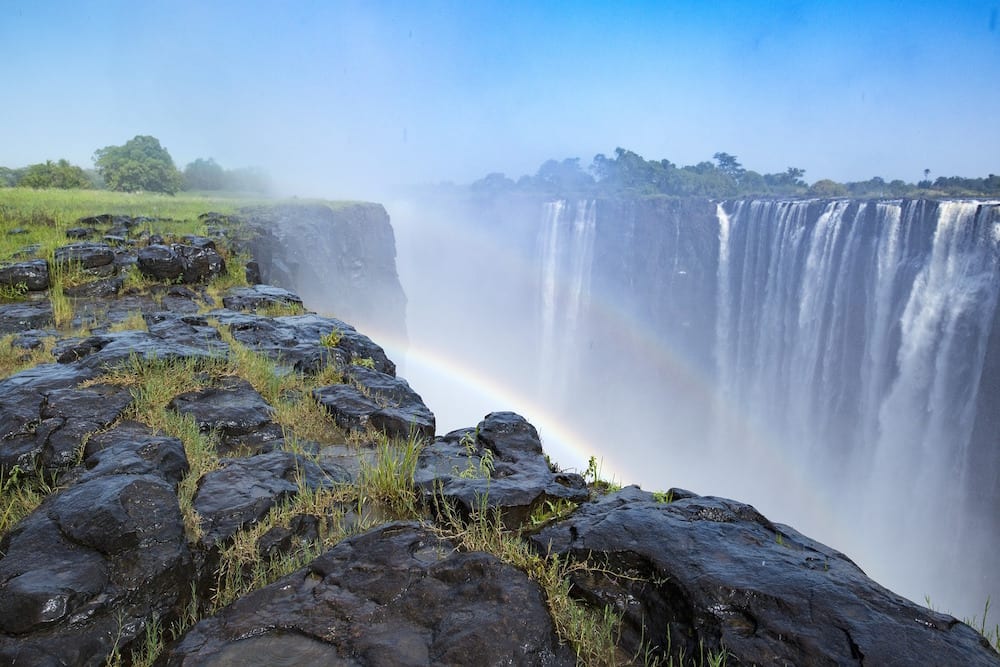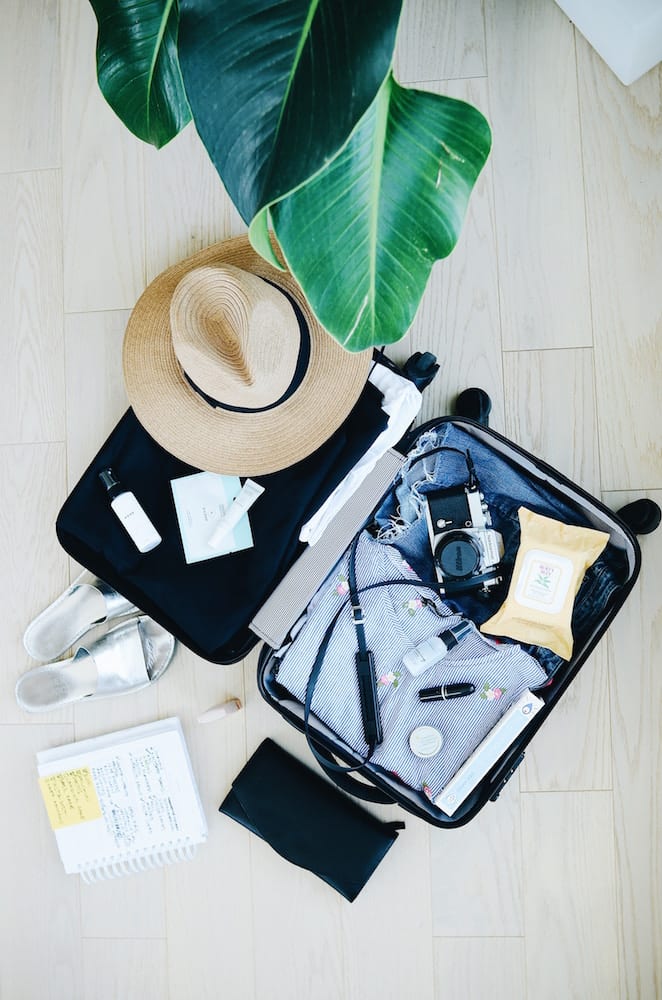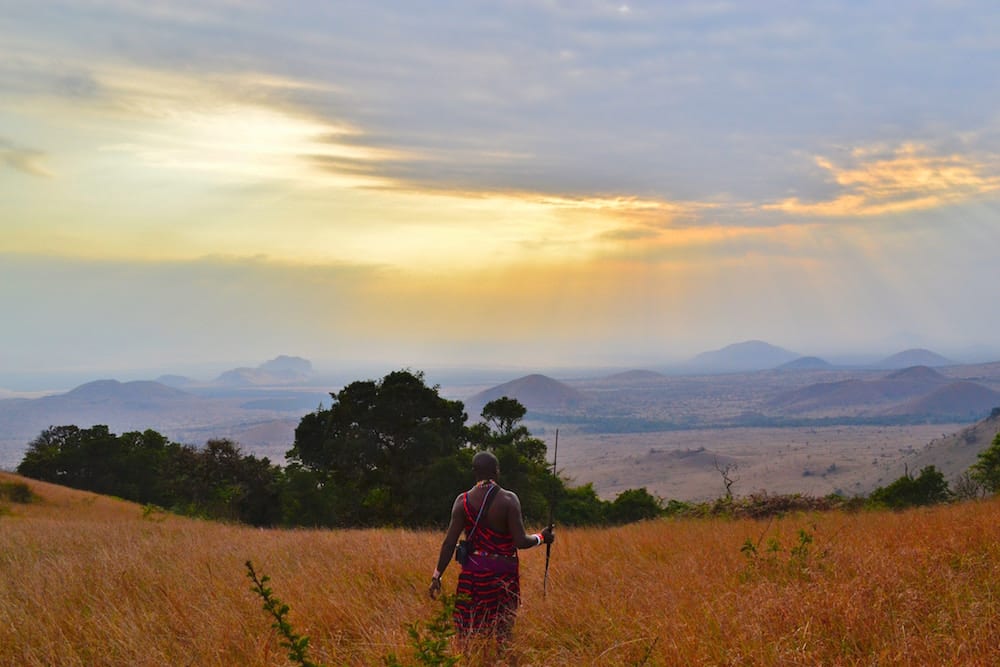Share this!
Thinking About Going to Africa? Start Here!

Why go to Africa? Oh, let me count the ways…
Perhaps you want to see the Smoke That Thunders, aka Victoria Falls, one of the largest waterfalls in the world. Maybe you’re more attracted to cosmopolitan cities like Cairo or Cape Town, where you can find markets and bazaars galore! Or are you seeking wildlife in refuge? Madagascar and its plethora of species you can’t find anywhere else, maybe that’s your aim. Or there’s Kenya where you can witness the great migration of wildebeest that has become the stuff of Disney movies.
Maybe you have a whole bucket list, but you don’t know where to start.
Well, this is a great place to start.
For a long time, Africa as a whole was the victim of stereotyping and prejudice thanks to centuries of colonization that tore the continent apart. Now, we cannot say that those days are completely behind us because they aren’t, but what we can say that we’ve let go of the absurd idea that Africa is an inaccessible wild. In fact, Africa is a traveler’s paradise with beautiful beaches, awesome heritage sites, amazingly diverse cities, and entirely unique ecosystems. If you’ve made the decision to see Africa in all its glory, then you’re in for a magnificent ride. Here are a few guidelines if you’re clueless about where to start.
DO think about when you want to go
To see Victoria Falls in her grandest glory, March or April is when the waters are most spectacular. Wildlife viewing in Kenya is best between June and October. Going to Ethiopia in January is the only way to see the cultural celebrations of Epiphany, or Timkat. Safaris are best in South Africa during the slow tourism season, between May and September.

Africa is a massive continent, so the seasonal climate in Egypt is going to be completely different than the seasonal climate in South Africa. Plus, the rainy and dry seasons vary across the continent, which makes telling you to go during one time or another difficult. There are resources that have a country-by-country break down of peak times to travel and their cold and hot seasons. Many safari companies let you know when the best time is for their particular area, so keep an eye out as you begin planning your trip. You can find weather information here, and here is a neat calendar that lays out the best times to go on safaris in different countries.
DON’T over-pack
It is delightfully easy to throw everything you think you might need into a pair of oversized suitcases and go, but that’s the sort of rookie mistake that we’re here to remind you not to make. Whether you’re aiming for a beach holiday, a hiking tour, a culturally immersive experience, or a weeklong safari, the last thing you’re going to want is an overstuffed suitcase.

In countries across Africa for most of the year, it’s wise to count on warmer days and cooler nights. So pack the varied essentials. A generally good rule is to lay out everything you want to pack then try to cut the amount of clothes in half. Instead of four nice shirts and five t-shirts, pick two nice ones and three t-shirts. Always lean toward your hardiest clothing, and prepare for any weather you might find yourself in. So, pack that bathing suit and your favorite coat. Make sure you have shorts and a good set of jeans, and most importantly, pack a few good pairs of socks if you’re travelling in the winter months. A good raincoat is a must as well if you’re travelling during the rainy season. You can always buy anything you need in-country.
Other than clothes, remember to have the converters you need as well as copies of your passport. Be sure to leave a little space–or even bring another bag–as souvenirs are an inevitability.

DO seek out local guides
This one may seem difficult, but it’s easier than you might think. Many tour companies hire locals or work directly with communities. If that information isn’t obvious on their website (or wherever else you’re getting information from) then simply inquire if the tour guides are locals. If the answer is yes, then yay! You’ve got yourself the best possible person to learn from. If the answer is no, then keep looking. Inquiring has the added benefit of pressuring companies to source locally, which is great for local economies.
When you’re finally there, learn as much as you can. From local guides, you can find out where the best restaurants are, what the local cocktails are, and maybe you can even pick up some slang phrases. Local guides are the best resource you’ll ever find.
DON’T forget to tell your bank
This is one of those steps that catches even the most seemingly prepared traveler. Before you go, make a quick call to your bank–really, it takes maybe a minute–and let them know your travel dates. That way, they won’t freeze your funds and leave your stranded on another continent without money. Getting your account unfrozen can be a serious pain, especially if you don’t have a phone with international calling.
Also, be sure to make a call to your credit card company, too. If you don’t have a pin number for it, consider getting one so you can use it overseas to withdraw money.
DO your research so you DON’T just blunder into trouble
Depending on which African countries your heart is set on, there could be political situations that you should really take into consideration. The U.S. Department of State issues warnings about countries that it suggests travelers think carefully about visiting and alerts about countries that are experiencing emotionally elevated events like elections. You can see that list here.
However, just because a country is on that list doesn’t mean you should forego it entirely. People are people wherever you go, and countries undergoing conflict stand to teach us the most about humanity. Reading up about other travelers’ experiences and methods of seeing a country can help mold your own plan, and resources like STEP can provide you with warnings while you’re in country if any emergency were to happen that might put you in harm’s way.
Also, once you’ve chosen your destinations, set aside some time to educate yourself on the history of the place. Africa Is full of countries with fascinating histories and cultures, and there are plenty of resources out there. Many are tainted with racism and prejudice, but many are written or produced by native people. Find those. Learn what the country is about and the customs of the region so you can have respectful interactions with the people. Disrespectful and ignorant travelers only give us all a bad rep.
Africa is an old, old land, the oldest humans have inhabited, so the culture that exists there has had a long time to develop. The people are proud of their heritage, and they have reason to be. So if you want to be the thoughtful traveler we assume you want to be–you are reading this after all–then aiming your research toward history and current politics will give you the vocabulary you’ll need.
If you aren’t a reader, go to Youtube. If you are a reader, find the country’s tourism website or fall into a Wikipedia hole. Consume as much information as you can, and take it with a grain of salt. The people you’ll meet and the experiences you’ll have will give you what all those videos and articles couldn’t. Knowing what they could tell you only helps you appreciate it more.






